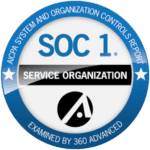🚨 TL;DR: Are You Overpaying on Shipping Without Knowing It?
If you’re not auditing your freight invoices, chances are… you’re bleeding money. Freight cost recovery helps businesses reclaim thousands lost to hidden billing errors like duplicate charges, incorrect fuel surcharges, and contract violations—errors that affect up to 15% of all freight invoices.
This blog breaks down:
- 📉 How much you could be losing each month
- 🧾 The most common (and sneaky) freight billing errors
- 💡 How companies like Hatfield and Associates use freight audit tools to catch and recover overcharges
- 🔧 Steps to start your own internal freight audit process
- 📊 Why mid-sized businesses can’t afford to ignore freight cost recovery
Bottom line: Every invoice is an opportunity. Recover your costs, improve cash flow, and stop giving away free money to carriers.
If you’ve never questioned your shipping invoices, now might be the time. Freight cost recovery is more than a buzzword—it’s a vital practice that ensures your company isn’t hemorrhaging money through unnoticed billing errors, duplicate charges, or sneaky rate miscalculations. Shockingly, some studies suggest that between 1% to 5% of all freight invoices contain errors, many of which favor the carrier (Supply Chain Dive).
So, why are so many businesses unaware of these issues? And how can you protect your bottom line with proper freight audit tools and practices?
Let’s dive into the silent thief that may be hiding in your transportation spend.
What Is Freight Cost Recovery?
Freight cost recovery is the process of identifying, disputing, and reclaiming incorrect or inflated shipping charges. It involves combing through freight invoices, rate agreements, and delivery documentation to find discrepancies. This process can be handled internally or outsourced to a freight audit and payment (FAP) provider.
For mid-sized companies dealing with high shipping volumes, even small percentage errors can lead to massive annual losses if left unchecked.
How Common Are Freight Billing Errors?
Very common. According to a report by the Journal of Business Logistics, up to 15% of freight bills contain errors, and nearly 80% of companies do not have a systematic audit process to catch them (source). These mistakes often go unnoticed because of the complexity and volume of freight invoices.
Common Freight Billing Errors Include:
Understanding the nuances of common freight billing errors can significantly aid in identifying and correcting discrepancies in your shipping invoices. Here’s a closer look at each type of error:
1. Duplicate Charges for a Single Shipment
Duplicate billing is a surprisingly frequent error where a single shipment is charged multiple times. This can occur due to clerical errors, software glitches, or mismanagement of shipping documents. Even a few duplicates per month can lead to hundreds or thousands of dollars in unnecessary expenses over time.
2. Incorrect Fuel Surcharges
Fuel surcharges should be based on current fuel prices and the agreed-upon percentage in the shipping contract. However, errors often occur when carriers apply outdated surcharge rates or miscalculate the amount due. Regular verification against current fuel indices and contract terms is essential to prevent overpayment.
3. Weight Discrepancies
The weight of a shipment directly influences transport costs. Errors in weighing procedures or documentation can lead to inflated shipping charges. Ensuring that the reported weight matches the actual weight is crucial. Investing in accurate scales and cross-referencing with carrier weigh-stations can mitigate these discrepancies.
4. Incorrect Classification of Goods
Freight charges are often determined by the classification of the goods being shipped. Misclassifying goods can lead to either higher charges if the items are classified as more expensive to ship, or lower if there’s a mistake but might cause compliance issues. Regularly updating product classifications and cross-checking with the Harmonized Tariff Schedule (HTS) can prevent such costly mistakes.
5. Erroneous Late Delivery Fees
Many contracts include penalties for late deliveries. However, these fees are sometimes applied incorrectly, either due to system errors or miscommunication regarding delivery schedules. Keeping detailed records of shipping timelines and having open communication with carriers can help contest unjust late delivery penalties.
6. Contractual Rate Violations
Contractual agreements detail specific rates for transporting goods. Errors occur when the carrier charges rates that violate these agreements. Such violations can be accidental or deliberate. Regular audits comparing invoiced rates with contracted rates help identify discrepancies and maintain financial accuracy.
By being vigilant and adopting robust auditing practices, businesses can catch and rectify these errors, leading to significant savings and improved financial health.
Table: Potential Freight Audit Savings by Shipment Volume
| Monthly Shipments | Estimated Billing Error Rate | Potential Monthly Savings |
|---|---|---|
500 | 2% | $2,000 – $5,000 |
1,000 | 3% | $5,000 – $15,000 |
5,000 | 4% | $20,000 – $50,000 |
10,000+ | 5% | $50,000+ |
Based on average shipping costs and observed error rates.
Subheading with Focus Keyword: How Freight Cost Recovery Saves Your Bottom Line
The beauty of freight cost recovery is that it turns what feels like a loss into an opportunity. With the right systems in place, every invoice becomes a chance to reclaim wasted spend.
Key Benefits:
- Immediate Cost Savings: Identifying and disputing overcharges puts money back in your pocket.
- Carrier Accountability: Carriers are less likely to make errors when they know you’re auditing.
- Improved Cash Flow: Recouping funds frees up capital for other parts of your business.
- Increased Visibility: Audit data helps you understand shipping trends, vendor performance, and budgeting gaps.
Why Do Freight Billing Errors Happen So Often?
Shipping data is complex and comes from multiple sources: carriers, warehouse managers, internal logistics teams, third-party logistics (3PL) partners, and more. Human error and outdated software make it difficult to reconcile these inputs.
Automation helps, but many systems still rely on manual entry at some point in the process. That’s where discrepancies are born—and where freight cost recovery comes in.
The Role of Freight Audit Tools
Companies like Hatfield and Associates offer advanced freight audit services that catch and recover these costly mistakes. Their solutions integrate with TMS and ERP systems to ensure end-to-end visibility, automate verification, and provide actionable reporting.
With customized audit logic, companies can check rates, surcharges, and delivery windows against contractual obligations in real time.
How to Set Up a Freight Audit Program
If you’re not ready to fully outsource your freight audit, here are the steps to get started internally:
- Gather Rate Agreements: Ensure all contracts and rate cards are current.
- Collect Invoices and Shipping Docs: Keep accurate records from all carriers.
- Use Audit Software: Automate wherever possible to reduce manual errors.
- Identify Discrepancies: Set rules for red-flagging common overcharges.
- Dispute and Track: Engage carriers with data to dispute erroneous charges.
- Report and Analyze: Track savings, recurring issues, and performance over time.
What Happens When You Ignore Freight Cost Recovery?
Plain and simple: you bleed money.
Beyond the direct cost of errors, poor audit practices hurt carrier negotiations, reduce credibility, and open you to compliance risks. Plus, if you ever face a financial audit, unaccounted overcharges can create unnecessary complications.
According to research published by The International Journal of Logistics Management, businesses that adopt freight auditing best practices report a 12-20% improvement in total logistics cost efficiency (read more).
Final Thoughts: Get Control of Your Freight Spend
In logistics, knowledge is power. And freight cost recovery gives you the knowledge you need to fix leaky spending, hold partners accountable, and scale your operations with confidence.
Mid-sized companies may not have the budget to absorb avoidable freight errors like larger enterprises do. That makes a freight audit strategy not just important—but essential.
Want to see how much you could recover? Let Hatfield and Associates perform a quick audit of your recent freight bills. You might be shocked at what you find.




